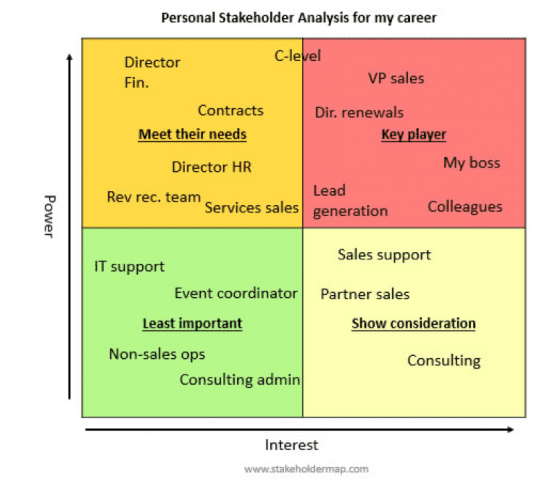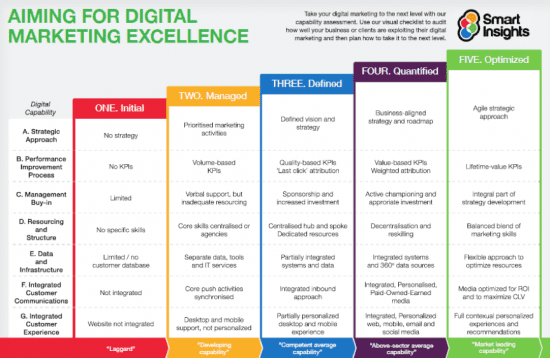4 behaviours that set top-performing marketers apart
Earlier this year the Harvard Business Review published a research paper that set out the top behaviours of the most successful CEOs. With many business leaders failing in their roles (from 2000 to 2013 25% of the Fortune 500 chief executives who left their firms were forced out) the authors conducted a study based on research conducted over 10 years with a database of 17,000 C-suite executives - including more than 2,000 CEOs - which covers all major industry sectors and a full range of company sizes.
It’s a fascinating article based on some really interesting research, revealing that one of the major reasons for CEO failure is that there’s a disconnect between what boards of directors think makes for an ideal CEO and what actually leads to high performance.
After reading the article it occurred to me that many of the problems, causes and behaviours associated with the top-performing CEOs can also be applied to marketing. Whilst our role as marketers is far less all-encompassing, we’re nevertheless expected to lead in different ways in order to drive change and implement new ideas and ways of working.
Within this post, I would like to highlight each of the behaviours that set successful CEOs apart and illustrate with examples how they can also apply to marketing leaders more specifically.
The four behaviours
As the original HBR article explains, the behaviours identified sound deceptively simple, however, the key is to practice them with disciplined consistency, which happens to be a challenge for many leaders:
1. Deciding with speed and conviction
Effective leaders do not necessarily make great decisions all the time. Instead, they recognise that a wrong decision may be better than no decision at all and are therefore capable of making decisions earlier, faster and with conviction, often against a backdrop of incomplete information. This is something Amazon’s Jeff Bezos singled out in his 2016 letter to shareholders:
"If you wait for 90%, in most cases, you're probably being slow."
Marketing leaders are faced with many important decisions on an almost daily basis that have the potential to impact brand and business performance. Sometimes the data we receive as marketers is inconclusive and contradictory, offering no clear case to go one way or another. However whilst we may want to get to the ‘perfect’ answer, in reality, this is rarely possible and therefore judging the right amount of time to assess options and then move on to make a quick decision is crucial.
Consider framing decisions by asking yourself two questions:
- What’s the impact if I get it wrong?
- How much will it hold other things up if I don’t move on this?
2. Engage for impact
Once a clear course of action has been set it’s essential to get buy in from key stakeholders. Strong alignment across the board is a top trait of effective leaders and involves an astute understanding of others’ needs and motivations and engaging others around a common goal.

Bringing others with you is particularly important for marketers, especially those in more technical roles and disciplines. SEO, for example, is a process typically managed by marketing and yet may impact different areas of a business, including public relations, ecommerce, sales and consumer affairs. However, everyone may not agree on your SEO plan, especially if it affects their department directly (e.g. an off-page strategy involving influencer outreach, something PR may typically manage).
An effective leader recognizes that whilst not all decisions will be popular, the key is to gain support by instilling confidence that their plan will lead to a successful outcome and benefit everyone overall. Conflict management and the ability to tackle difficult situations positively are therefore important skills to master.
3. The ability to adapt
The HBR study found that CEOs who excel at adapting are 6.7 times more likely to succeed and points to the aftermath of Brexit and the 2016 US presidential election as events that showed how certain leaders were able to adjust to a rapidly changing environment.
The evolution of digital transformation is impacting businesses in new and different ways and marketing is at the forefront of many of these changes. The advent of advanced AI (e.g.Google’s DeepMind), conversational interfaces (e.g. messaging bots and smart home devices) and the dominance of the ‘big four’ (Google, Facebook, Amazon, and Apple) are just a few examples of how business is evolving at a lightening pace. Nobody could have predicted 10, maybe even just 5 years ago, that by 2017 Google and Facebook would form a digital advertising duopoly.
Effective marketing leaders understand that to drive meaningful digital transformation at scale, businesses and brands must be open to change and a long-term perspective, all of which will enable marketers to optimize digital media activation, create first-class experiences and develop learning across the organization. Much of this will be dependent on each organization’s stage in the digital transformation journey:

4. Reliability
The ability to deliver results reliably over time is a trait admired by both senior leaders and employees alike, with predictability and a steady hand being preferred to dazzling one-off successes.
Whilst reliability may not sound like the most exciting of characteristics, the ability to deliver consistently over time is a very difficult skill to master, which explains why this is cited as possibly the most powerful of the four essential CEO behaviours in the original HBR study.
A key practice here is about setting realistic expectations early in a role and spending time understanding the situational environment. Form a marketing perspective this will involve evaluating all elements of the marketing mix as well as the company or brand’s plans, budgets, and forecasts. Assessing the business landscape and gaining a clear idea of key stakeholder and customer expectations (see stakeholder analysis above) will enable you to align these with your own point of view of what’s realistic.
Strong organization skills are linked to reliability and good leaders establish effective business management systems, including:
- Clear cadence of meetings with relevant stakeholders
- Dashboard of meaningful metrics, updated regularly to reflect marketing performance
- Strong team of individuals, each excelling in their specific areas of expertise
Conclusion
There is no ‘perfect mix’ of the four behaviours and every marketing leader will need to dial up certain traits depending on his or her specific situational context. For example, those working in a fast-moving, entrepreneurial environment such as a start-up or small business, will need to excel at adapting proactively, whilst those working in more stable, corporate organizations may need a stronger emphasis on engaging for impact where stakeholder alignment is much more crucial to success.
Nevertheless, although other qualities including integrity, work ethic, compassion and confidence are all very important, as the HRB study has shown good leaders who focus on these four essential behaviours are much more likely to be chosen for leadership roles and ultimately succeed in their position.








